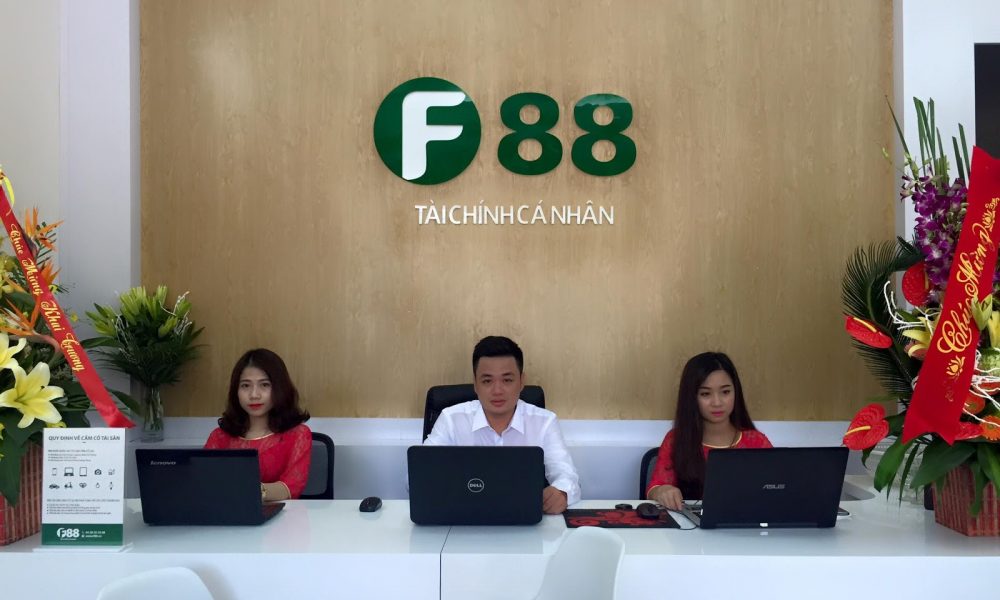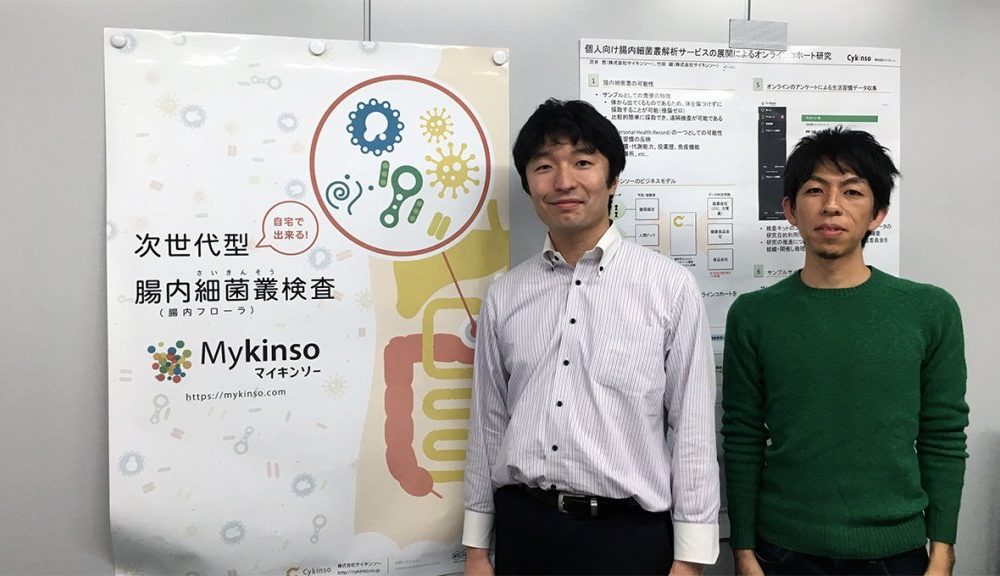Category: Startup
Chinese used car dealership Uxin secures US$500 million funding co-led by TPG, Jeneration, and China Vision
Uxin, an online auction house for used cars in China has managed to secure a US$500 million funding round co-led by investors private equity giant TPG, Chinese multi-family office Jeneration Capital and newly established value investment firm China Vision Capital.
Existing and new investors Warburg Pincus, Tiger Global Management, Hillhouse Capital, KKR & Co. L.P. and Huasheng Capital also participated in the round, which brings Uxin’s total fundraising to around US$1 billion.
China Renaissance Partners and China International Capital Corporation (CICC) will also act as the firm’s financial advisor.
With these latest proceeds, Uxin will continue its investment in business development, product services as well as branding awareness – a move to provide better user experience and to position themselves ahead from their competitors.
In September 2016, a similar online platform Guazi.com raised US$250 million, just six months after completing a US$204.5 million round. Another industry player, RenRenChe, raised US$150 million, while Tiantianpaiche and Souche.Com each raised US$100 million last year.
Founded in 2011, Uxin operates a business-to-business used car auction platform Uxin Pai (www.youxinpai.com) and a business-to-consumer used car transaction platform Uxin Ershouche (www.xin.com), as well as Uxin Finance, which provides financial services focused on used car transactions.
The company also employs over 1,000 specialists in 50 Chinese cities, who inspects and certify the quality of user vehicles for sale on Uxin’s platform. Uxin makes use of its proprietary “CheckAuto” system and advanced vehicle identification capabilities to ensure the quality of vehicles sold through its platform.
Additionally, the used car dealership offers all buyers a full guarantee and will refund their purchase within 15 days if they were to discover any undisclosed issues with all vehicles bought through Uxin.
In 2015, Uxin recorded monthly revenue of RMB150 million (about US$21.7 million), with monthly transaction volume reaching 50,000 used car purchases in December alone, according to an announcement by the company.
Uxin’s chief executive officer Dai Kun told Chinese media that the company had reached profitability in July 2016, and is expected to reach total transaction volume of 800,000 with aggregate transaction value of RMB60 billion (about US$8.7 billion) in 2017.
“TPG has tracked the used car sector in China for three years,” said Derek Chen, a partner at TPG. “After research and comparison, we found Uxin to be the company with the only proven business model in terms of user demand, market size and financial performances.”
Julian Cheng, co-head of China at Warburg Pincus, said Uxin had established a business model suitable for the Chinese market after studying the experiences of the United States and Japan’s used car e-commerce platforms.
The company previously raised venture funding worth US$400 million in 2015 from Baidu, KKR, Coatue Management LLC, Warburg Pincus, Tiger Global Management LLC, Legend Capital, Bertelsmann Asia Investments (BAI), DCM and Tencent Holdings Ltd.
By Vivian Foo, Unicorn Media
Mekong Capital invests in Vietnam-based F88 pawn shop chain
Private equity firm Mekong Capital announced on January 10 that the Mekong Enterprise Fund III (MEF III) has invested an undisclosed amount into Vietnam-based pawn shop chain F88.
The terms and value of the investment were not disclosed, although the fund is said to be an eight digit number and Chris Freund, a partner at Mekong Capital, will join the management board of F88 as part of the deal.
This also marks the third investment made by the PE firm’s US$112.5 million fourth fund since its launch in May 2015. Prior to this financing, MEF III had closed investments in restaurant chain Wrap & Roll and cold chain logistics company ABA Corporation.
Founded in 2013, F88 is a pioneer in Vietnam’s pawn service chain which leverages on a tech platform. It provides transparency in operation and offers an effective alternative to traditional borrowings which brings a reliable financial solution to consumers.
The IT platform within F88 covers data about management tasks, deposited items, and most importantly product valuation. “For this model to work, it is very difficult to agree on the valuation of the products. Our technology solutions are the key to this problem,” said Phung Anh Tuan, the chairman and CEO of F88.
“This combination facilitates us to strengthen our management team, approach to the world’s best practices and improve service quality to ready us for a rapid and sustainable growth,” Phung Anh Tuan added.
F88 currently operates 15 stores in Hanoi and several surrounding provinces while aiming to have 70 outlets in the north of Vietnam by the end of this year and as many as 300 stores across the country by 2020.
“F88’s competitive edge is its entrepreneurial co-founders, professional management team, IT infrastructure, and strong corporate governance. We believe that with Mekong Capital’s well-proven approach towards adding value, called Vision Driven Investing, and our extensive network of international experts and resources, F88 will continue to improve their operations and successfully execute an ambitious nationwide expansion plan,” said Freund, the Mekong Capital partner at F88.
This is said to be an established business model found around the world, according to the fund partner. However, the risk associated with it in the Vietnamese market is how to scale the size of the market opportunities.
Freund also mentioned that the firm’s strategy did not include investing in new disruptive technologies. However, Mekong Capital will continue to search for companies with proven business and strong teams that can successfully execute their models, irrespective of sectors.
The chain currently provides loans on diverse assets such as cars, motorcycles, mobile phones, laptops, and jewellery. With the investment by Mekong Capital, F88 plans to go for an IPO within the next five years.
“We are very proud and excited that F88 is the third investment we’ve announced for the Mekong Enterprise Fund III,” Freund added.
MEF III, which focuses on investments in Vietnamese consumer-driven businesses such as retail, restaurants, consumer products, and consumer services, targeting investments ranging from US$6 to US$15 million each.
By Vivian Foo, Unicorn Media
Beijing-based EasyStack secures US$50 million series C funding led by Cash Capital
EasyStack, one of the leading open source cloud enterprise cloud platform and services provider in China, has announced on Wednesday, that the company has closed a US$50 million Series C funding round led by Beijing-based Cash Capital Investment Management Co, Ltd., an investment arm of the Chinese Academy of Science Holdings.
Other investors also include a number of unnamed RMB funds, which has brought the company’s total venture fundraising to US$68 million, in addition to setting a new record for a single round funding in the open source field in China.
“Improving China’s self-developed cloud computing capabilities is an important part of China’s 13th Five-Year Plan,” said Chen Hongwu, a partner at CASH Capital. “EasyStack has the best team with robust technology expertise, and the company has established a leading position in China’s open source enterprise services market.”
Founded in February 2014 by the core team of IBM China R&D Center, EasyStack is the leading cloud platform and service provider in Asia-Pacific, providing cloud computing services that is open, controllable, stable, and reliable with high performance based on OpenStack for over 100 enterprise clients including China Mobile, China UnionPay, and Lenovo Group Ltd.
“China is one of the most active areas for OpenStack, and many Chinese companies including EasyStack are making great contributions to the community. The Series C investment is a big milestone for EasyStack, and I believe OpenStack will grow fast with the support of successful OpenStack companies and users,” said Jonathan Bryce, the executive director of OpenStack foundation.
Besides, EasyStack adheres to the concept of open cloud computing and contributes to the development of the community. In its newly released Newton Version of the OpenStack, EasyStack takes the lead in China as well as being the eighth in the world in terms of tc-approved commits.
“The core competitiveness of the cloud computing service provider is demonstrated in the R&D capacity of the basic technologies based on the accumulation of the service and implementation experience of the enterprises and the establishment of the threshold of the leading enterprise clients of a certain industry,” said Xilun Chen, the founder and CEO of EasyStack.
Hence, with this new round of financing, EasyStack plans to continue improving its technology and operation, through primarily focusing on the research and development of core open source technologies, eco-investment of the open source cloud enterprises solution, and team building of the enterprise cloud services.
Besides, the firm also looks to expand its market scale in the OpenStack field, continuously enhancing its capacity to offer comprehensive services, improve its advantages in technologies and the operation cost so as to build an open source cloud platform featuring stability, security, high efficiency and controllability for enterprise users.
Prior to this, the company had raised US$2 million in a series A round from Blue Run Ventures in 2014, while in 2015, EasyStack has managed to secure US$16 million in its series B round.
By Vivian Foo, Unicorn Media
Mobile app management platform Hansel.io raises US$1.35 million round led by IDG Ventures
Mobile application management platform, Hansel.io, has secured US$1.35 million in a funding round led by IDG Ventures with participation from existing backer Endiya Partners, the company said in a statement on Wednesday.
“What made us excited about Hansel.io was the ease with which the product can help mobile developers solve major production issues at runtime. At a time when customer acquisition and retention costs continue to skyrocket, a product like Hansel.io comes as a big boon for a great end-user experience,” Venkatesh Peddi, the Executive Director at IDG Ventures said.
With the latest proceeds, the Bengaluru-based firm will use the funds for team expansion, product development, and growth in overseas markets – that is specifically the expansion of the company presence in the North American market.
This round follows Hansel.io seed funding in February 2016 from Endiya Partners, Tracxn Labs, along with a group of angel investors including Rajesh Sawhney and Mekin Maheshwari.
“With this round of funding, the focus will be to go global, go cross-platform, and help mobile developers be as responsive to their end users as possible,” the co-founder and CEO Varun Ramamurthy explains.
Founded in 2015 by former Flipkart employees – Varun Ramamurthy, Parminder Singh, and Mudit Maur, Hansel Software Pvt. Ltd. develops crash analytics for mobile applications, offering a developer-friendly toolkit that helps them to diagnose, resolve and communicate customer issues on their application.
In other words, Hansel.io allows mobile developers to fix bugs, update configurations, edit user interfaces, and manage security policies of mobile apps at runtime. The platform is currently available on both Android and iOS.
“Despite the abundance of use cases the product provides for, for the developer, it is a simple configure-and-deploy product, where companies can go live in less than 15 minutes. We have built the product to be as intuitive and effortless to use as possible,” said Parminder Singh, one of the co-founders of Hansel.
Hansel.io can help developers start managing their live apps at runtime, with just a five-minute integration process and no code change required, developers can start managing their live apps at runtime using Hansel.
The company claims that it currently has an installed app count of more than 140 million across client such as redBus.in, Toppr, nearbuy, Voonik and ShopX among others. The firm also claims that it has impacted nearly 20 million devices, helping the users by fixing a bug, changing the UI or security permissions.
By Vivian Foo, Unicorn Media
Japan’s healthcare startup Cykinso secures US$2.3 million investment to provide intestinal health advice
Tokyo-based Cykinso, which develops and sells Mykinso – a test kit for intestinal flora, has announced that it has secured 270 million yen (about US$2.3 million) from the Regional Health Care Industry Support Fund and other investors in its seed round.
The GP for the Regional Health Care Industry Support Fund are REVIC Capital and AGS Consulting under the jurisdiction of the Regional Economic Revitalization Support Organization, with banks being the funds’ limited partners (LPs).
This fund follows an earlier round of angel funding from individual investors and grants secured from numerous government agencies such as the Ministry of Economy, Trade, and Industry’s “Project to Encourage the Creation of SMEs and New Business” as well as a grant from Kanagawa Prefecture for the “Project to Promote the Creation of the Preventive Medicine market”.
Despite being grants, Cykinso has, in terms of business stages, labeled the proceeds received as their seed round, making their most recent funding essentially a series A round.
According to Cykinso. these latest proceeds will be used to finance business development, including using the data collected from the intestinal flora tests to develop a system for offering nutritional guidance. This platform will focus on gut microbiomes is unique, given the crucial role and impact it has on an individuals’ health.
Founded in November 2014 by CEO Yu Sawai, who has previously worked at a genome research company, the venture is conducting joint research with RIKEN Innovation Center’s Benno Laboratory and Osaka University’s Research Institute for Microbial Diseases’ Department of Infectious Metagenomics.
In August 2015, the Japanese startup was accredited as a RIKEN Certified Venture. Three months later, the firm released “Mykinso” – a home-testing kit for intestinal flora which allows people to test the state of their intestinal bacteria (i.e. gut biome).
Following this, there is also the release of “Mykinso Pro” for the professional market which enables medical institutions and clinics to register patient examination data and manage specimens. Data provided will be presented to the user or the user’s doctor in the form of a cloud or paper report.
The company claims that it has collected intestinal flora data from around 2000 people through both services, receiving permission from users beforehand and the assurance that users will remain anonymous. Depending on the scale of the accumulated data regarding intestinal floral, the services to be offered and the business stage will be adjusted accordingly.
In October 2016, Cykinso has along with dispensing pharmacy big name Aisei Pharmacy (TSE:3170) and leading mobile service provider MTI (TSE:9438) held an event called “Intestinal Summit” to promote awareness among general consumers about intestinal flora and services.
Additionally, this week the Japanese startup will move offices from the Kanagawa Science Park, where they have resided for the two years since inception, to the Good Morning Building in Shibuya, Tokyo. For Cykinso this signifies its transformation from a purely academic venture into the business domain.
By Vivian Foo, Unicorn Media





